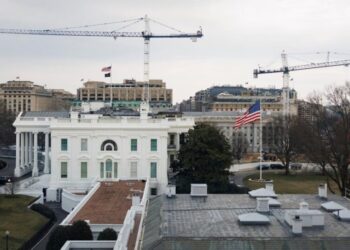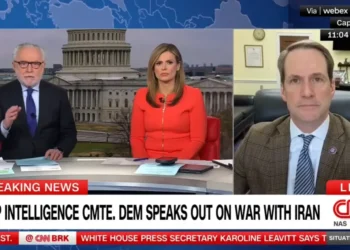Tourists who say they are stranded in the Middle East are launching GoFundMe campaigns to cover their hotel bills
Shanice Day is one of the tourists stranded in Dubai who is using GoFundMe to cover unexpected costs. Courtesy of...
An Assertive Supreme Court Turns to Curbing State Courts
When the Supreme Court issued an emergency order this week that protected the congressional district of a New York Republican,...
Panel reviewing Trump’s White House ballroom project will vote on it April 2
WASHINGTON — A federal panel reviewing President Trump’s plans to build a ballroom at the White House has set April 2 for...
Italy Pledges Air Defenses for Gulf Allies as Europe Accelerates Response to Mideast Crisis
More European countries were being drawn into the widening orbit of the Iran conflict on Thursday, as they announced the...
5 Heavy Metal Bands With Bourbon Whiskey Brands That Live Up to the Hype
I don’t remember the first time I drank whiskey. I’d almost bet real money, however, that it happened while I...
‘Direct attack’ on poor: GOP bill said to be weaponizing poverty against immigrants
The Georgia House of Representatives passed a measure Wednesday that could allow property owners to sue city and county governments...
The Iran War, History and the Law
To the Editor: It is remarkable that yet another American administration has, in the face of scant understanding of far-off...
Top Intelligence Chief Slams Trump’s ‘Unnecessary’ Iran War
A former major British intelligence chief has issued a stark warning about potential fallout from Donald Trump’s war with Iran,...
Republicans Toil to Avoid Saying ‘War’ as Iran Conflict Widens
When President Trump gave reporters a brief update this week on the accelerating bombing campaign against Iran, he said, “We’re...
Dodgers work with Andrew Toles’ family to continue supporting former outfielder
The story of the Dodgers and Andrew Toles is one of a franchise trying to do the right thing by...














